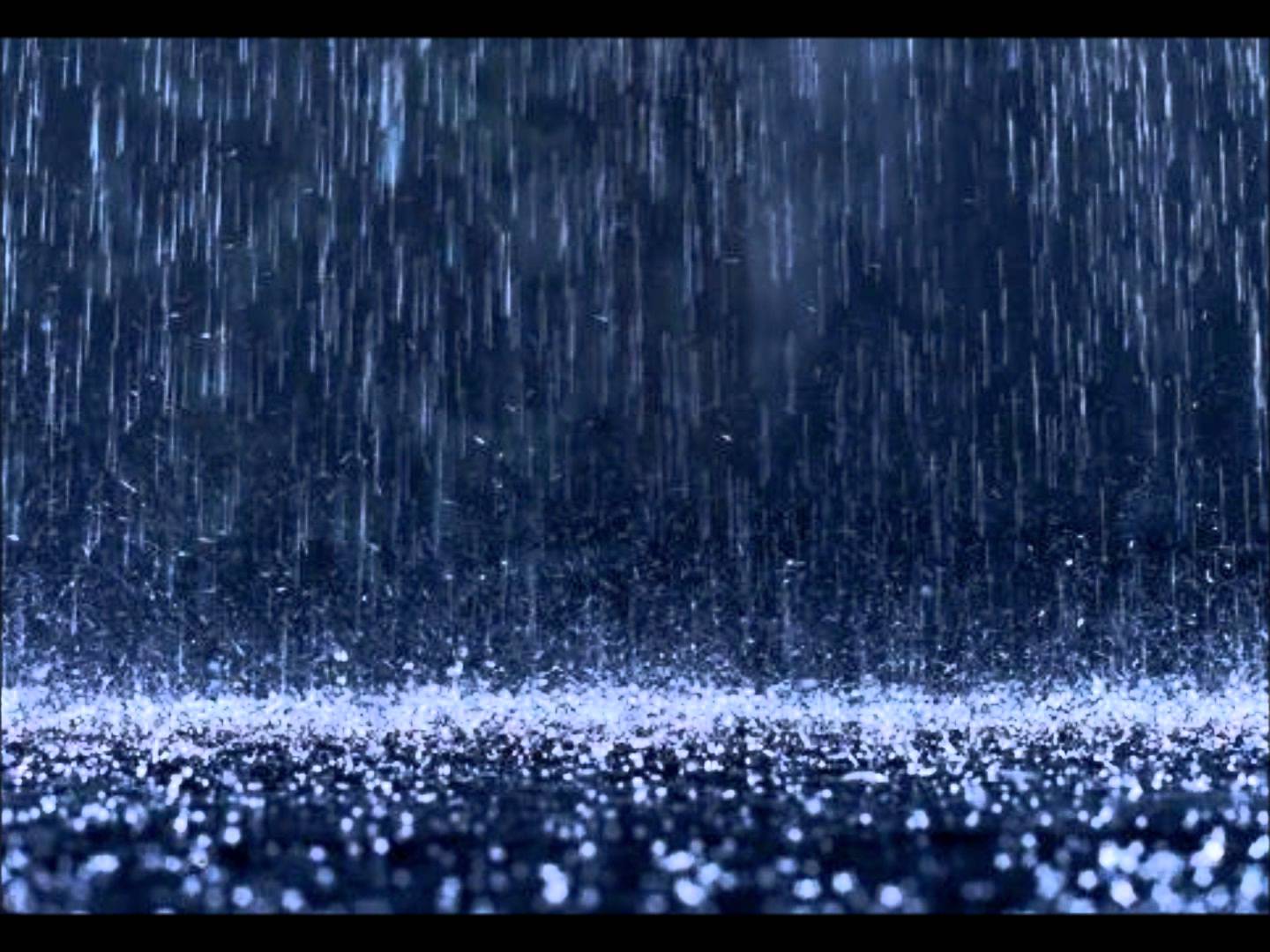Rain Came, Wind Blew: Building An Unshakeable Life
Life, in its essence, is a series of seasons. Some are bathed in sunlight, gentle breezes, and calm skies, while others bring forth the tempest. It's in these tumultuous times that a profound phrase echoes through history and modern anthems alike: "rain came, wind blew." This isn't merely a description of bad weather; it's a powerful metaphor for the inevitable challenges, crises, and uncertainties that test the very foundations of our existence. Understanding this concept, and more importantly, learning how to build a life that withstands such storms, is not just a philosophical exercise but a practical necessity for navigating the human experience with resilience and enduring hope.
From ancient parables to contemporary worship songs, the imagery of a house standing firm against the elements speaks to a universal truth: what we build our lives upon determines our ability to endure. This article delves deep into the meaning behind "rain came, wind blew," exploring its biblical roots, its modern musical interpretation, and practical principles for cultivating an unshakeable foundation in your own life. We will uncover why some structures crumble under pressure while others remain steadfast, offering insights that transcend mere survival to foster true thriving amidst adversity.
Table of Contents
- The Timeless Echo of "Rain Came, Wind Blew": Understanding the Metaphor
- A Parable for the Ages: The Wisdom of Building on Rock
- "Firm Foundation (He Won't)": A Modern Anthem of Trust
- Deconstructing the Lyrics: "My House Was Built on You"
- Beyond the Song: Applying "Rain Came, Wind Blew" to Daily Life
- Building Your Own Firm Foundation: Principles for Resilience
- The Unseen Strength: Why Foundations Matter More Than Appearances
- Navigating Life's Storms: A Journey of Enduring Hope
The Timeless Echo of "Rain Came, Wind Blew": Understanding the Metaphor
The phrase "rain came, wind blew" immediately conjures images of powerful, uncontrollable forces. It's a vivid picture of nature's raw power, capable of tearing down what isn't firmly rooted. But its true significance lies in its metaphorical application to human experience. In life, the "rain" can represent financial hardship, unexpected illness, the loss of a loved one, or deep emotional pain. The "wind" might symbolize societal pressures, relational conflicts, career setbacks, or the relentless currents of change. These are the inevitable trials that challenge our stability, our peace, and our very sense of self. This metaphor is potent because it speaks to a universal human condition: no one is immune to adversity. The question is not *if* the storms will come, but *how* we will respond when they do. Will our inner "house" crumble under the pressure, or will it stand firm, a testament to the strength of its underlying structure? The answer, as we will explore, lies not in avoiding the storms, but in the deliberate, often unseen, work of building a robust foundation.A Parable for the Ages: The Wisdom of Building on Rock
The enduring power of "rain came, wind blew" stems directly from one of the most famous parables taught by Jesus Christ, found in the Gospels of Matthew (7:24-27) and Luke (6:47-49). This parable, often referred to as "The Wise and Foolish Builders," serves as a foundational teaching on the importance of not just hearing wise words, but putting them into practice. It's a stark comparison between two approaches to life and their inevitable outcomes when faced with adversity.The Wise Builder vs. The Foolish Builder: A Tale of Two Foundations
In the parable, two men set out to build houses. One, described as wise, digs down deep and lays his foundation on solid rock. The other, deemed foolish, builds his house directly on the sand, seemingly taking a quicker, easier path. The crucial test comes when the "rain came down, the streams rose, and the winds blew and beat against that house." * **The House on the Rock:** "Yet it did not fall because it had its foundation on the rock." This house, built with foresight and effort, withstood the torrent. Its stability was not due to its outward appearance, but to the hidden strength beneath. The wise builder understood that true security comes from a deep, unyielding base. * **The House on the Sand:** "But it fell, and great was its fall." The house built on sand, despite perhaps looking fine in fair weather, collapsed catastrophically under the storm's assault. Its superficial construction proved fatal when put to the test. The spiritual interpretation is clear: the "rock" represents hearing Jesus' words and putting them into practice – living a life based on His teachings of love, wisdom, and obedience. The "sand" represents hearing these words but failing to act on them, building a life on fleeting trends, superficial values, or self-reliance alone. The parable emphasizes that true spiritual and emotional resilience is forged in the quiet, consistent discipline of aligning one's life with eternal truths. It's a powerful reminder that outward success or comfort in calm times means little if the underlying structure is weak when "rain came, wind blew.""Firm Foundation (He Won't)": A Modern Anthem of Trust
Fast forward to the present day, and the timeless message of the wise and foolish builders finds a powerful contemporary voice in the Christian worship song "Firm Foundation (He Won't)" by Cody Carnes, featuring Chandler Moore. This song has resonated with millions globally, precisely because it articulates the same profound truth in a relatable, emotionally charged way. It's a modern declaration of trust in God's faithfulness and protection, even when the world feels like it's shaking. The song's core message is encapsulated in its repeated affirmations: "He won't fail" and the pivotal line, "rain came, wind blew but my house was built on You." It takes the ancient parable and personalizes it, transforming it into a powerful testimony of divine reliability in the face of personal storms. The popularity of this song underscores a deep human need for stability and reassurance in an unpredictable world. It provides a lyrical anchor for those seeking to ground their lives in something beyond themselves.Cody Carnes: Crafting Songs of Faith and Resilience
Cody Carnes, an acclaimed worship leader and songwriter, along with co-writers Chandler Moore and Austin Davis, has a gift for crafting songs that speak directly to the heart of faith. His music often blends contemporary sounds with profound theological truths, making complex spiritual concepts accessible and emotionally impactful. "Firm Foundation (He Won't)" is a prime example of his ability to take a timeless biblical principle – the importance of building on a solid foundation – and translate it into an anthem for modern believers. Carnes' work, including this song, serves as a musical testament to the enduring power of faith as a source of strength and resilience. He doesn't shy away from acknowledging the reality of life's difficulties ("rain came, wind blew") but consistently points to a higher power as the ultimate source of stability. His contribution to contemporary worship music provides a vital soundtrack for individuals navigating their own personal storms, reminding them that their ultimate safety lies in a foundation that cannot be shaken.Deconstructing the Lyrics: "My House Was Built on You"
The power of "Firm Foundation (He Won't)" lies in its direct, unwavering declaration of trust. The chorus boldly states: "Christ is my firm foundation The rock on which I stand When everything around me is shaking I’ve never been more glad That I put my faith in Jesus ‘Cause He’s never let me down He’s faithful through generations So why would He fail now?" This is not just a theological statement; it's a deeply personal one. The "house" is the individual's life – their hopes, dreams, relationships, identity, and peace. The "You" is explicitly identified as Christ, symbolizing an ultimate, unchanging source of truth, strength, and love. When the lyrics declare, "rain came, wind blew but my house was built on You," it's a triumphant assertion that despite external chaos, internal stability remains because of a deliberate choice to anchor one's life in something eternal. The song reiterates, "I'm safe with You, I'm gonna make it through." This isn't a naive denial of pain or difficulty, but a profound confidence rooted in the nature of the foundation. It acknowledges the reality of the storm ("rain came, wind blew") while simultaneously affirming the certainty of endurance. This dynamic tension between the harsh reality of trials and the unwavering hope in a strong foundation is what makes the song so relatable and empowering. It offers solace and strength, reminding listeners that their faith isn't a fragile belief, but a robust anchor.Unwavering Faith in the Face of Adversity: "He Won't Fail"
A recurring and powerful refrain in "Firm Foundation (He Won't)" is "He won't, He won't" – a confident assertion that God will not fail. This is a direct challenge to doubt and fear that often arise when "rain came, wind blew." In moments of crisis, it's natural to question everything, including the very ground beneath our feet. This song provides a counter-narrative, a declaration of trust that stands firm against the tide of uncertainty. This unwavering faith isn't a blind leap; it's often built on past experiences of faithfulness, both personal and historical. The lyrics explicitly state, "He's faithful through generations, so why would He fail now?" This draws upon a long lineage of trust and divine reliability, suggesting that if a foundation has proven strong for countless others through countless storms, it will hold true for the present one. It's a proactive choice to lean into a known, proven strength rather than succumbing to the immediate pressure of the storm. This kind of faith is not about the absence of problems, but the presence of an unshakable resolve and trust in the midst of them.Beyond the Song: Applying "Rain Came, Wind Blew" to Daily Life
The metaphor of "rain came, wind blew" extends far beyond religious contexts and into the fabric of everyday human experience. Every person, regardless of their beliefs, faces moments when their world feels shaken. These could be: * **Career setbacks:** A sudden job loss, a failed business venture, or a significant professional disappointment. * **Health crises:** A personal illness, the diagnosis of a loved one, or the challenges of aging. * **Relational strains:** Conflict with family or friends, the pain of a broken relationship, or the loneliness of isolation. * **Financial instability:** Economic downturns, unexpected expenses, or the burden of debt. * **Existential questions:** Moments of doubt, loss of purpose, or grappling with life's deeper meanings. In each of these scenarios, the underlying question remains: what is your "house" built upon? Is it external circumstances, fleeting successes, or the opinions of others? Or is it something more enduring – core values, inner resilience, a strong moral compass, or a deep spiritual conviction? When "rain came, wind blew," the superficial layers are stripped away, revealing the true strength (or weakness) of our internal architecture. This understanding is crucial for building a life that doesn't just survive challenges but grows stronger through them.Building Your Own Firm Foundation: Principles for Resilience
So, how does one practically build a "house" that withstands when "rain came, wind blew"? It's a deliberate, ongoing process, not a one-time event. Here are key principles for cultivating an unshakeable foundation in your life: 1. **Identify Your Core Values:** What truly matters to you? Integrity, compassion, perseverance, honesty, growth? These values, when consistently lived out, form the bedrock of your character and decision-making. They provide a compass when storms disorient you. 2. **Cultivate Inner Strength (Mindset):** Develop a resilient mindset. This involves embracing challenges as opportunities for growth, practicing gratitude, and reframing setbacks as learning experiences. Cognitive Behavioral Therapy (CBT) principles, for example, teach how to identify and challenge negative thought patterns that can erode your internal stability. 3. **Invest in Meaningful Relationships:** Strong, supportive relationships act as external anchors. A network of trusted friends, family, or community provides emotional support, practical help, and perspective when you feel overwhelmed. These connections are vital shock absorbers when "rain came, wind blew." 4. **Practice Self-Care:** Physical, mental, and emotional well-being are fundamental. Adequate sleep, nutritious food, regular exercise, mindfulness, and healthy coping mechanisms (e.g., journaling, meditation, hobbies) are not luxuries but necessities for maintaining your inner strength. 5. **Develop Problem-Solving Skills:** Instead of being paralyzed by problems, cultivate a proactive approach. Break down challenges into smaller steps, seek advice, and learn from past experiences. This empowers you to navigate difficulties rather than being swept away by them. 6. **Embrace Lifelong Learning:** Continuous learning, whether formal or informal, keeps your mind agile and adaptable. It equips you with new tools and perspectives to tackle unforeseen challenges, fostering a sense of competence and confidence. 7. **Cultivate a Spiritual or Philosophical Anchor:** For many, this involves faith in a higher power, as highlighted in "Firm Foundation (He Won't)." For others, it might be a deeply held philosophical worldview, a commitment to humanitarianism, or a profound connection to nature. This anchor provides ultimate meaning and purpose, offering solace and direction when all else seems lost.Identifying Your "Rock": What Truly Grounds You?
The "rock" in the parable is not just any solid ground; it's a specific, enduring foundation. For the song "Firm Foundation (He Won't)," it's explicitly Jesus Christ. For individuals, identifying your "rock" means understanding what truly grounds you, what provides unwavering stability when everything else is shaking. This requires introspection and honesty. Is your "rock" your career? Your financial portfolio? Your physical appearance? While these can provide temporary comfort or status, they are inherently susceptible to external forces. A career can end, money can be lost, and health can decline. A true "rock" is something that transcends these external variables. It's an internal compass, a set of principles, or a spiritual conviction that remains constant regardless of circumstances. Taking the time to define and reinforce this personal "rock" is the most crucial step in preparing for when "rain came, wind blew."The Unseen Strength: Why Foundations Matter More Than Appearances
One of the most critical takeaways from the "rain came, wind blew" metaphor is that true strength is often invisible. The wise builder spent time and effort digging deep, laying a foundation that was hidden from view. The foolish builder, in contrast, built quickly, perhaps creating an outwardly impressive structure that lacked internal integrity. This applies profoundly to life. We live in a world often preoccupied with appearances – social media profiles, material possessions, superficial achievements. It's easy to neglect the unseen work of building character, fostering resilience, and nurturing our inner lives. However, when the inevitable storms hit, it's not the facade that matters, but the foundation. A person who has cultivated strong values, emotional intelligence, and a deep sense of purpose may not always appear the most outwardly successful or glamorous, but they will be the ones who stand firm when others crumble. This emphasis on internal fortitude over external display is a timeless truth that offers profound wisdom for navigating the complexities of modern life.Navigating Life's Storms: A Journey of Enduring Hope
The journey of life is undeniably marked by both sunshine and storms. The phrase "rain came, wind blew" serves as a perennial reminder that adversity is not an exception but an integral part of the human experience. However, this truth is not meant to instill fear, but to empower. By understanding the critical importance of a firm foundation, whether it be rooted in faith, core values, or an unyielding spirit of resilience, we gain the foresight and wisdom to prepare. The song "Firm Foundation (He Won't)" beautifully encapsulates this message of enduring hope. It transforms the potential despair of a storm into a declaration of victory, a testament to an unshakeable trust. It reminds us that even when everything around us is shaking, we can find stability and safety when our "house was built on You." This isn't about avoiding the rain or stopping the wind; it's about building a structure so robust that it can weather any tempest, emerging not just intact, but often stronger and more deeply rooted than before.In conclusion, the timeless wisdom embedded in "rain came, wind blew" urges us to look beyond the immediate and invest in the eternal. It calls us to examine the very bedrock of our lives, ensuring that when the inevitable storms arrive, our house – our spirit, our character, our peace – will not fall. What foundation are you building on today? Share your thoughts and experiences in the comments below. If this article resonated with you, consider sharing it with someone who might be navigating their own storm, or explore other articles on resilience and personal growth on our site.
- Noticias Univision 41 San Antonio Tx Hoy
- Sunshine4445 Onlyfans
- Tiffany Wheeler
- Charles Barkley Angola
- Berry Melon Only Fans

Series of storms to bring rain to the Central Coast

Beautiful Rainy Day Images Free - Infoupdate.org

What Causes Rain | How Is Rain Formed | DK Find Out